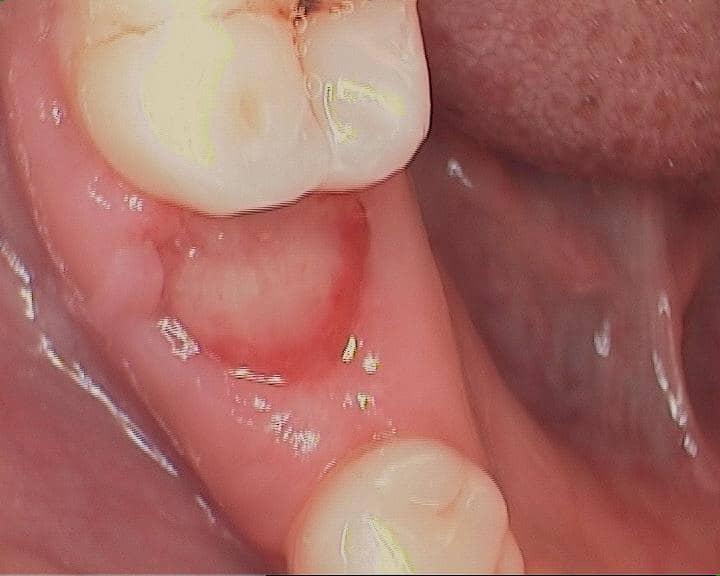Post operative instruction after Dental Implant and Wisdom Tooth Removal Surgery
Do not use a straw and avoid hard swishing and spitting.
After 24 hours, please begin gentle rinsing with warm saltwater twice a day.
If you were given a prescription, please take as directed.

wisdom tooth extraction 3
Instructions and Do’s and Do not’s after Wisdom Teeth Surgery and Dental Implant Surgery
Bleeding: Small amounts of blood in the saliva can make your saliva appear quite red. This is normal and may be noticed the rest of the day after the procedure. To slow or prevent bleeding, bite with light pressure on the gauze that has been placed over the surgical area. Pressure should be applied for 30 minutes. If bleeding reoccurs, apply a damp tea bag and repeat the above steps until the bleeding stops. Exercise and/or heavy lifting can raise your blood pressure. This can increase your chances of dislodging the blood clot and bleeding will resume. Avoid exercising for three to five days following the surgery.
Smoking and Tobacco use: Smoking should be stopped (for at least 72 hours) following surgery. Successful healing will be substantially reduced by the cigarette smoke chemicals in your body. Especially do not smoke after having all your teeth removed and replaced with implants.
Pain: Some discomfort is normal after surgery. Along with the anesthetic injection site, the gum tissue may have been irritated during the procedure and may be sore for a few days. The idea is to prevent the pain from starting. If prescription pain medication is prescribed, take it as instructed on the label. Do not exceed the dose on the label. Taking with food or milk will help reduce upset stomach. Take it before the anesthesia wears off.
Nausea and Vomiting: This is most often caused by taking pain medications on an empty stomach. Reduce nausea by preceding each pain pill with soft food, and taking the pill with a large glass of water or milk.
Swelling and Pain: Swelling is a natural part of the healing process and can be expected for 3 days to several weeks depending on the nature and the extent of the surgery. To help prevent and/or minimize swelling, an ice bag can be applied to the face over the operated area every 10 to 15 minutes. Continue this for the first day. After 72 hours, apply warm compresses to the area to relieve swelling. Sleep with your head elevated the first 3 nights after surgery (use and extra pillow).
Numbness and anesthesia: The local anesthetic will cause you to be numb for several hours after you leave the office. Be very careful not to bite, chew, pinch, or scratch your tongue or cheek. Sometimes the implant procedure causes residual numbness or tingling for six weeks or longer.
Brushing and home care after tooth and implant surgery: You may brush your teeth gently, but avoid the area of surgery for 3 days.
If you wear a DNA appliance for sleep apnea or TMJ, continue wearing your appliance on the 2nd day after your surgery.
Rinsing after tooth surgery: Avoid all rinsing or swishing for 48 hours after your procedure. After 48 hours, please begin gentle rinsing with warm saltwater twice a day. Avoid commercial mouthwash that contains alcohol.
Easting and Tooth Removal: Eat soft foods for the first two days. Do not use a straw and avoid hard swishing and spitting (any activity that creates pressure in the oral cavity). Avoid chewing food in areas where implants were placed. Maintain a good, balanced diet. Return to normal, regular meals as soon as you are able after the first two days. Drink plenty of water. Avoid alcohol for 48 hours.
Activity and Exercise after Oral Surgery: After leaving the office, rest and avoid strenuous activities for 3 to 5 days after surgery. Keeping blood pressure lower will reduce bleeding and aid healing.
Antibiotics: If you were given an antibiotic prescription, take all of them as directed until they are gone.
Sinus: If your sinus was involved in the procedure, you should avoid blowing your nose or playing a wind musical instrument for one week. Use of decongestant medications might be recommended.
Removable Appliances and Dentures: If you received a dental prosthesis, your dentist will give you specific instructions. To avoid putting any pressure on the new implants before they have healed, your denture might be adjusted or significantly modified. In certain cases you will need to go without your dentures for a period (days or weeks) after the implants are placed. Sometimes a temporary removable appliance is made for cosmetic purposes, until a new non-removable one can be made.
Follow up Appointments: If you were not given dissoluble sutures, you will need to return to the office within the first 7 to 10 days to have sutures removed, or just for a brief follow-up healing check. However, please call our office if you experience any of the following:
- uncontrollable pain
- excessive or severe bleeding after 3-4 hours of applied pressure
- marked fever
- excessive warm swelling occurring a few days after the procedure
- reactions to medications, skin rash
- hives
- elevated temperature
- nausea/ vomiting
- dizziness/ fainting
**Please note, if at any point you experience a medical emergency call 911.
Schedule Consultation


 (301) 421 1996
(301) 421 1996 burtonsvillesmiles@gmail.com
burtonsvillesmiles@gmail.com